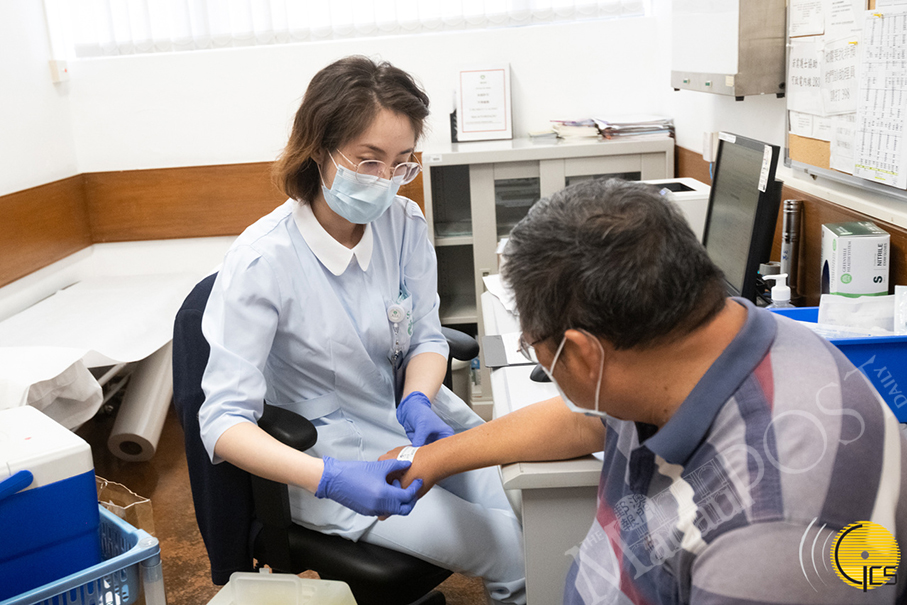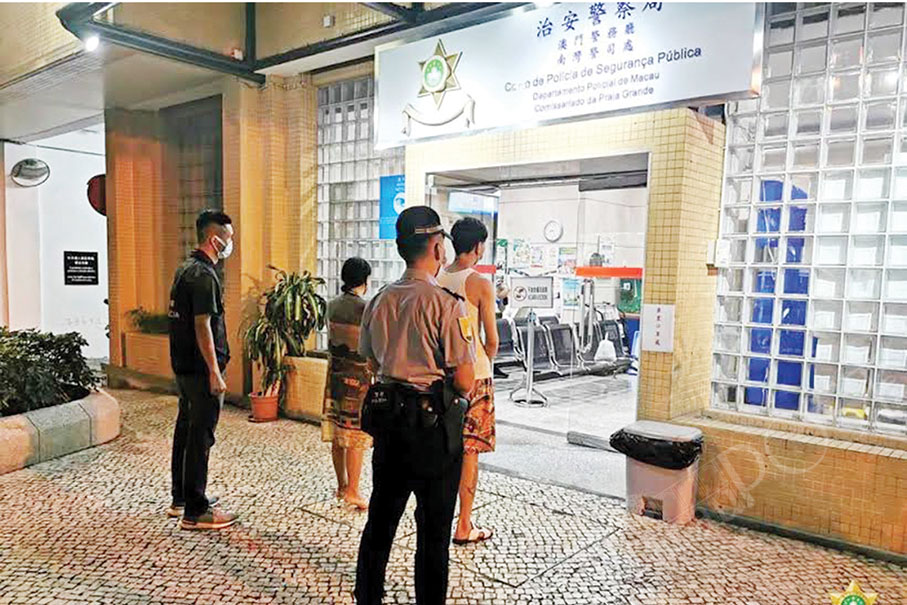Macau has confirmed its 55th COVID-19 case, a 22-year-old local woman studying in the United Kingdom who returned to Macau on Saturday, the Novel Coronavirus Response and Coordination Centre has announced.
According to a statement by the centre on Saturday night, the woman tested negative for COVID-19 in a nucleic acid test (NAT) in the UK on Thursday, before she departed for Macau on Friday via Singapore.
Upon arrival in Macau on Saturday, the statement said, the woman underwent a nucleic acid test, which showed that she tested positive for the novel coronavirus.
According to the statement, the woman told the Health Bureau (SSM) that she had not been confirmed as a COVID-19 patient in the UK and not been inoculated against COVID-19 there.
The unvaccinated patient has been classified as an imported case.
Student diagnosed with COVID-19 in Switzerland tests positive again
Meanwhile, the statement also announced that a 24-year-old local man who returned to Macau from Switzerland on Saturday tested positive for COVID-19 in a nucleic acid test upon his arrival here.
According to the statement, the man studying in Switzerland tested negative for COVID-19 in a nucleic acid test there on Thursday, before he departed for Macau on Friday via Singapore.
According to the statement, the man arrived in Macau on Saturday from Singapore on the same flight (SCOOT TR904) as the female student from the UK.
The statement said that as the man had been confirmed as a COVID-19 patient in Switzerland in January, the Macau Health Bureau has classified his case as one in which “a person has later tested positive for the novel coronavirus again” in a nucleic acid test after having previously been infected with COVID-19 and recovered elsewhere.
Testing positive again vs relapse
The Health Bureau has previously pointed out that the fact that some COVID-19 patients discharged from hospital or asymptomatic carriers of the novel coronavirus have later tested positive for the virus again in a nucleic acid test is “merely a phenomenon”, which means that they have not had a relapse, i.e. suffering COVID-19 symptoms again.
The statement described both patients’ condition as “normal”. They have meanwhile been transferred to the Health Bureau’s Public Health Clinical Centre in Coloane for isolation treatment, the statement said.
All those arriving in Macau from a foreign country are required to undergo a nucleic acid test (NAT) upon their arrival here. In addition, they are required to undergo several nucleic acid tests during their 21-day hotel quarantine period.
Macau confirmed its first COVID-19 case on January 22 last year. Among the 55 cases confirmed so far, 53 have been classified as imported, while two cases have been classified as “connected to imported cases”. The first 51 patients have been cured and discharged from hospital, and no fatalities have been reported in Macau, which has been spared community transmission of the novel coronavirus disease.
367,958 COVID-19 jabs
Meanwhile, the centre announced in a statement yesterday that as of 4 p.m. yesterday, 367,958 doses of COVID-19 vaccine had been administered to 247,278 people in Macau, comprising 125,154 who had received their first jab and 122,124 who had received their second jab.
Macau’s COVID-19 vaccination rate stood at 36.2 percent as of 4 p.m. yesterday – i.e. over one-third of the population has received at least one jab. Experts say that Macau needs to reach a vaccination rate of at least 70 percent in order to achieve herd immunity.
Macau’s population stood at 682,500 at the end of the first quarter, according to official demographics.
A total of 29 adverse events were reported in the past 24 hours (until 4 p.m. yesterday). The total number of adverse events since the start of the vaccination drive stood at 1,580, or 0.43 percent of the total number of jabs, including five serious cases.

This file photo in late February shows a nurse pasting a label on the hand of a man who has received a COVID-19 jab at a public health centre indicating his 30-minite observation period following the vaccination. Photo: GCS





